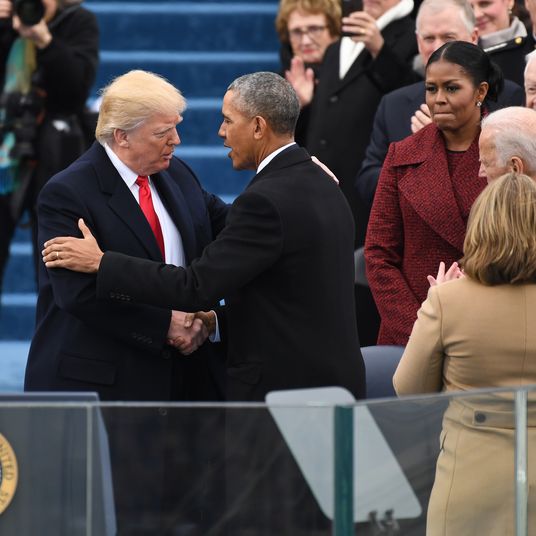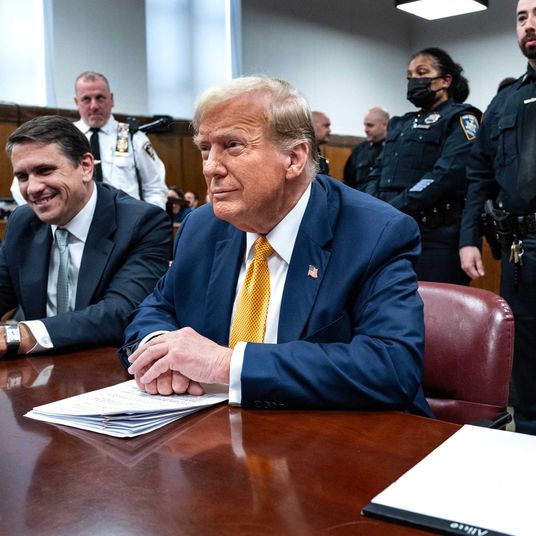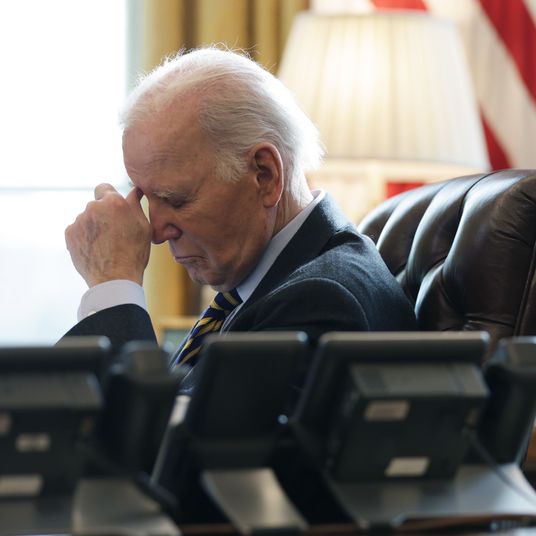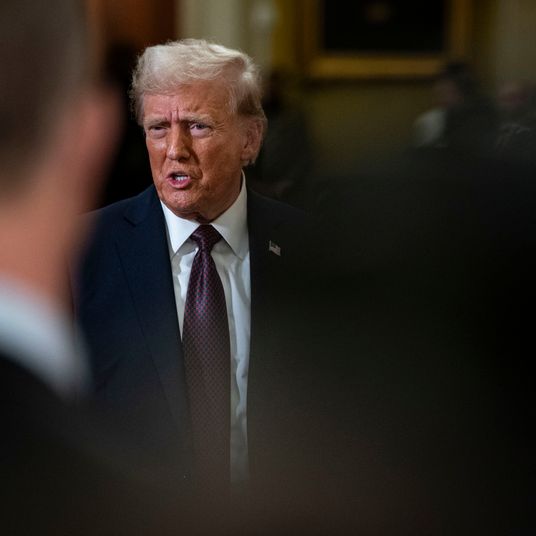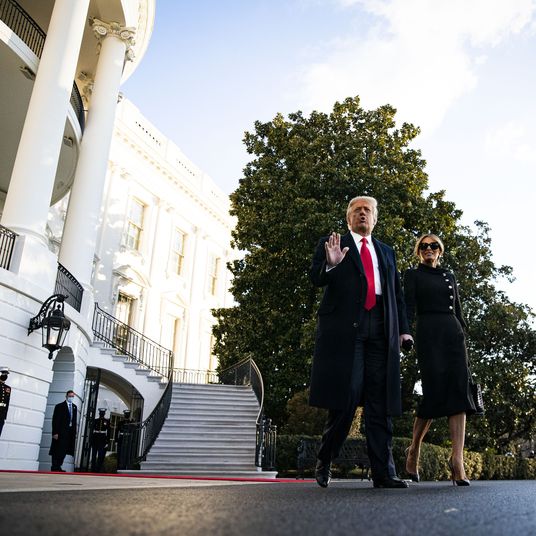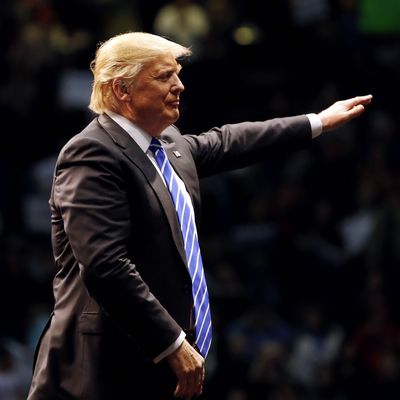
“Momentum” has been a mostly illusory factor in the presidential race, a narrative conceit devised by journalists to describe contests mostly driven by geography and demography. On the Republican side, Ted Cruz crushed Donald Trump in Wisconsin because that state had a well-organized party apparatus in a demographically friendly locale. In New York, Trump prevailed in his home state, where he faced little organized opposition. But while momentum may be just a narrative conceit, psychology — its close cousin — is very real. If Trump fails to amass 1,237 pledged delegates, the psychology of the party will determine whether or not it rallies to deny him the nomination. In the wake of Trump’s large, and larger than expected, New York victory, the willpower of Trump’s Republican opposition may be weakening.
1. The Koch network, a political organization significantly larger than the official Republican Party, is currently planning to sit out the convention in Cleveland, reports Ryan Lovelace. “Amidst a contested convention potentially, and amidst the environment that has a lot of name-calling and whatnot where you’re not really talking about a lot of big issues, it’s hard to get out your message,” a Koch network source told him. “So the value proposition immediately diminishes.” Lovelace also quotes an official statement from Freedom Partners, a Koch organization: “If during the general election cycle, a candidate were able to garner support from the public with a positive message in support of the issues we care about, and did not engage in personal attacks and mudslinging, we would consider potentially getting involved.”
Translated, the Kochs are saying they don’t want to get their hands dirty fighting to deny Trump the nomination in Cleveland. If the party nominates a candidate they like, they may support him afterward, but they won’t throw themselves into the struggle to stop Trump.
2. Tim Alberta notes that conservative organizations are not throwing everything they have into the remaining primaries to stop Trump. “It’s widely acknowledged within conservative circles that some of the big-donor money has begun to dry up, and that many of the anti-Trump organizers are understandably rationing resources so they can compete not just through June 7, but through a contested convention as well.”
3. Several members of the Republican National Committee tell Eli Stokols that Trump will not need 1,237 pledged delegates, or anything close to that, in order to win the nomination before the convention. To understand the significance of this, remember that Trump’s chances of winning the nomination are the sum of two variables. The first is the number of bound delegates he wins in primaries and caucuses. If that number is below 1,237, he can make it up by persuading some of the roughly 200 unbound delegates — party officials who get to vote — to support him on the first ballot. If Republicans are unified and determined to stop Trump, then Trump has no room for error at all. He needs all 1,237 on his own and can expect no help from party officials. This is the scenario that anti-Trump Republicans, like consultant Rick Wilson, have maintained would take place:
But Stokols’s reporting implies this is not the case at all. One Republican committee member suggests Trump could prevail if he comes within just a hundred delegates. Another tells Stokols Trump could come within 50 to 100 delegates. They may be wrong, but they are at least providing evidence of a perception that the party is ready to reconcile itself to Trump. Perhaps Republican officials fear the chaos and perceived illegitimacy of denying the nomination to the plurality winner, or they find Cruz no more palatable (or not sufficiently more attractive to be worth fighting for).
Wisconsin presented an image of the Republican Party the anti-Trumpsters hoped and believed they would create. Conservative activists and party officials would form a united front and send the message to the base that Trump was an interloper, and elevate Cruz as a plausible and even desirable presidential nominee; Cruz would gather enough momentum to hold Trump beneath his required first-ballot majority, and use his organizing strength to line up delegates for a second-, third-, or fourth-ballot win. The plan hinges on Republicans broadly sharing a belief that they must treat a Trump nomination as an existential threat that dwarfs any other downside — be it pro-Trump street theater in Cleveland, a Trump write-in campaign, or having to support Ted Cruz. Its chances of success also hinge on the perception that the plan can succeed, and that Republicans sticking their neck out to block Trump won’t be alienating some of their own supporters only to damage the inevitable nominee for no reason. Trump’s victory in New York has dealt a blow to his opponents’ morale that may prove self-fulfilling.









